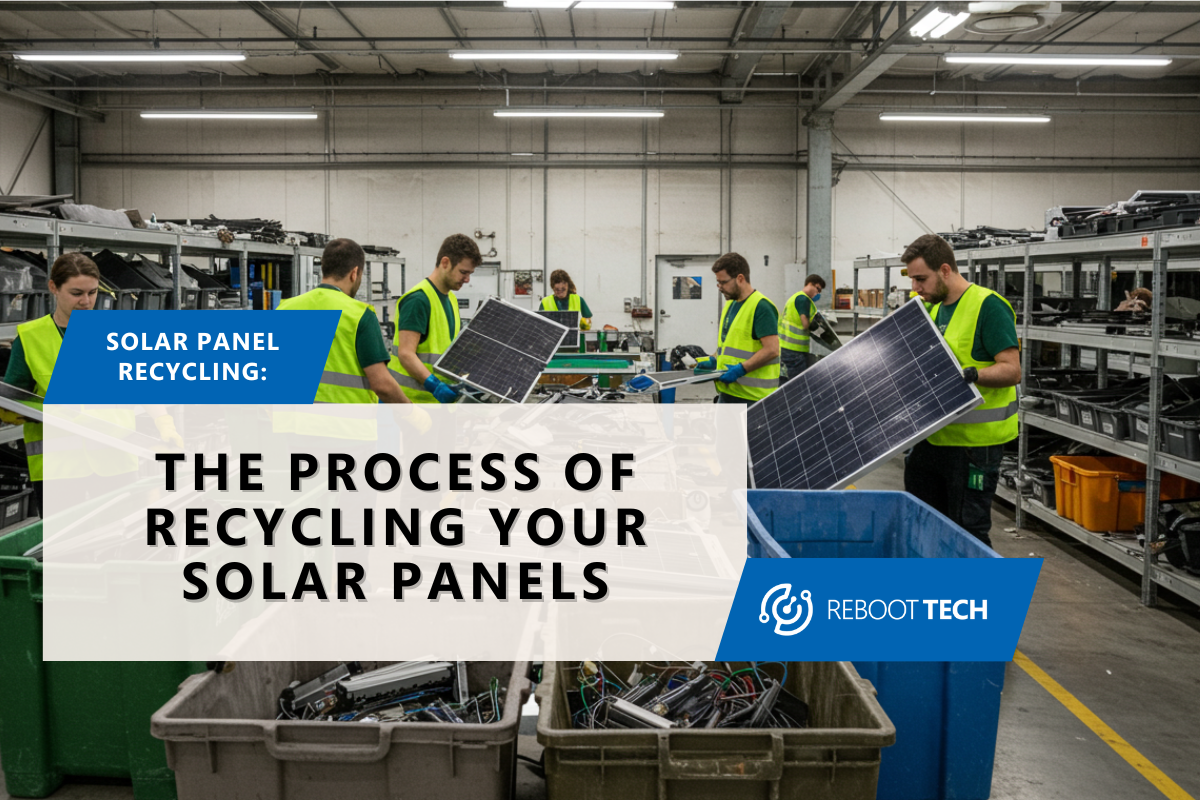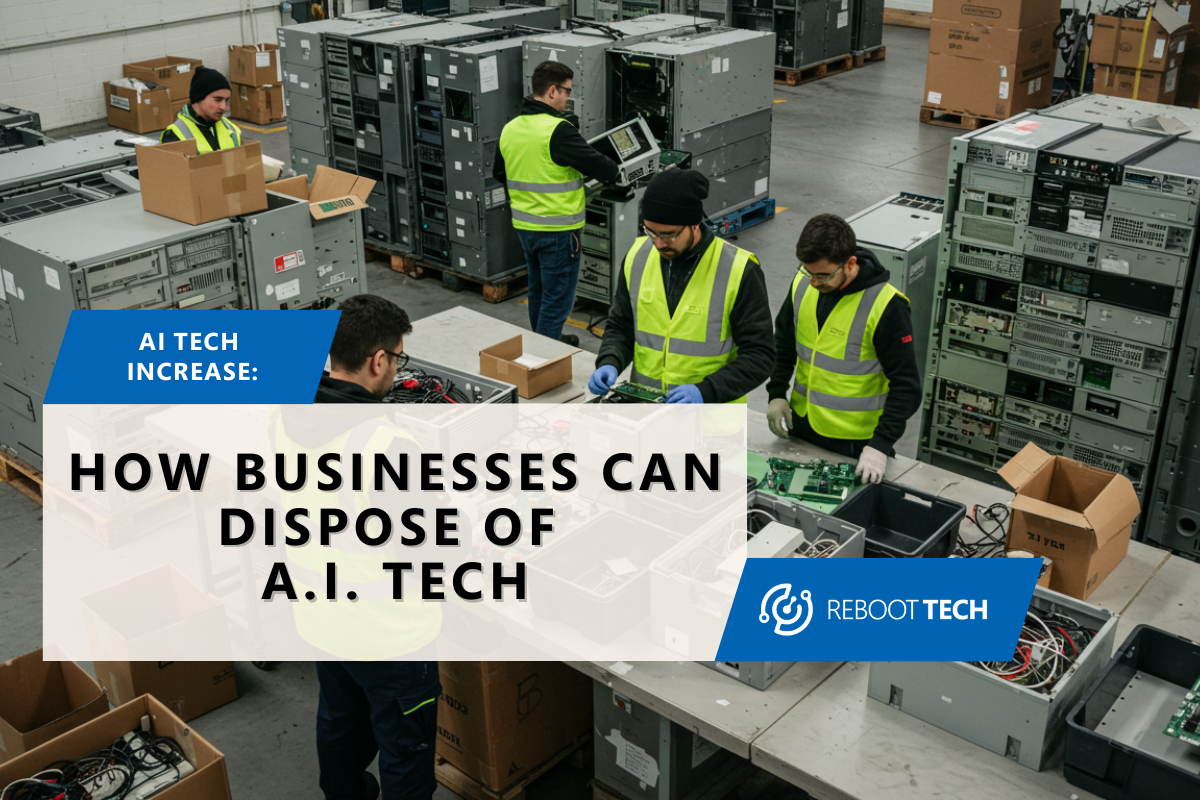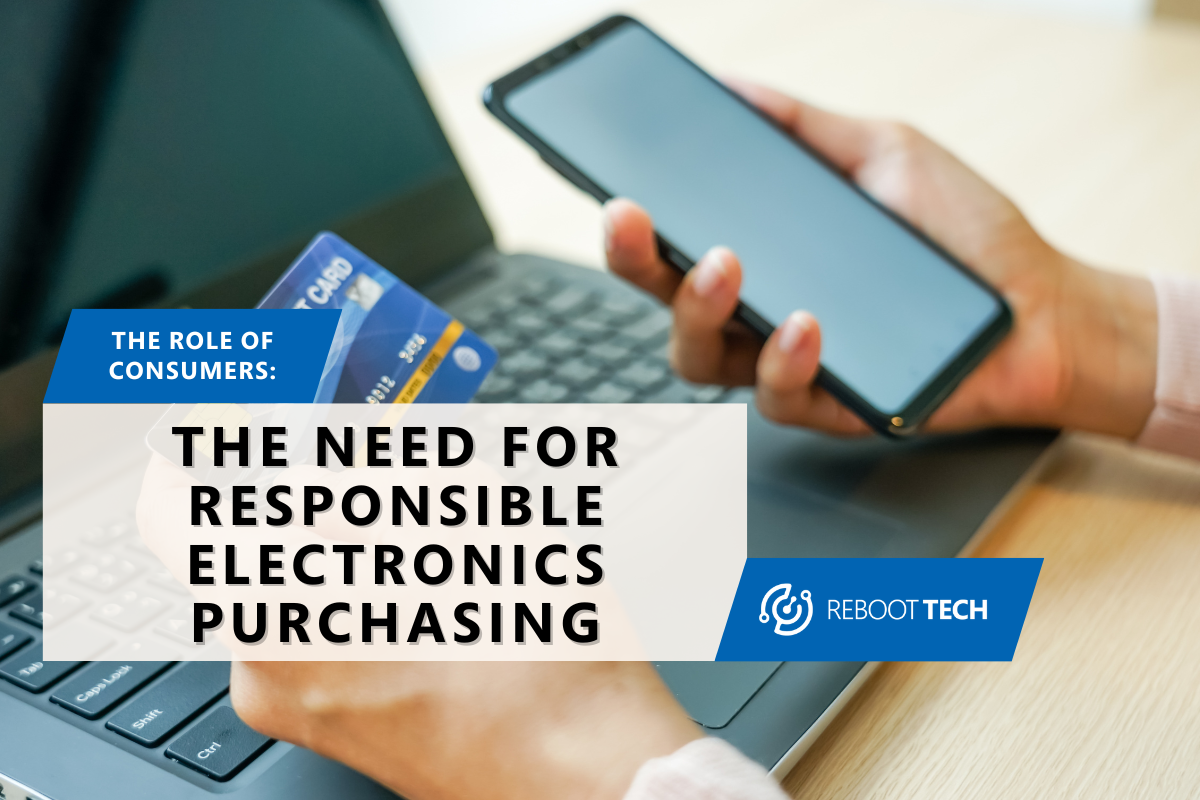
The Need for Responsible Electronics Purchasing
In today’s digital age, electronic products are an essential part of our lives. From smartphones to laptops, we rely on these devices for work, communication, and entertainment. But have you ever stopped to consider the impact of your electronics purchases on the environment?
The truth is, every time we buy a new gadget, we contribute to the growing e-waste problem. This issue is often overlooked, but it’s becoming increasingly important for us to think about how we can purchase electronics more responsibly.
In this article, we’ll explore the e-waste problem, the role consumers play in it, and how marketing tactics can lead to impulsive and unnecessary purchases. We’ll also discuss practical steps you can take to make more responsible buying decisions and how working with certified e-waste recyclers like Reboot Tech can help reduce your environmental impact. By the end, you will know how to purchase electronics responsibly.
The E-Waste Problem
Electronic waste, or e-waste, is one of the fastest-growing waste streams in the world. Each year, millions of tons of discarded electronics end up in landfills, where they release toxic substances into the environment. This not only harms the planet but also wastes valuable raw materials that could be recovered and reused.
E-waste includes anything from old mobile phones and laptops to broken kitchen appliances and outdated TVs. These devices contain hazardous materials like lead, mercury, and cadmium, which can leach into the soil and water, causing serious environmental damage. The problem is compounded by the fact that many of these devices are not disposed of properly, either because people don’t know how or because they don’t realize the importance of proper disposal.
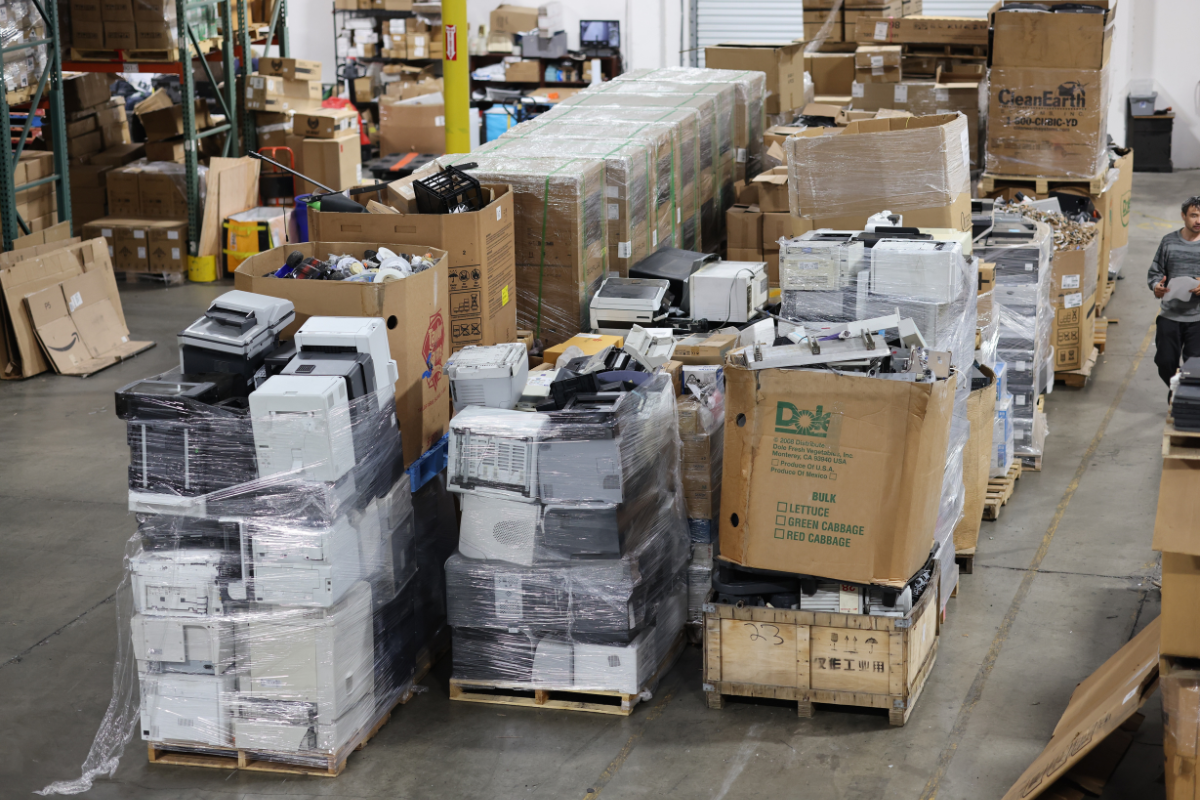
The Role Consumers Play in E-Waste
As consumers, we have a significant impact on the e-waste problem. Every time we buy a new electronic device, we contribute to the demand for new products, which in turn leads to more manufacturing, more resource extraction, and more waste generated. But it’s not just about the devices we buy—it’s also about how we dispose of the ones we no longer need.
Many of us are guilty of holding onto old electronics, letting them gather dust in a drawer or closet. While it might seem harmless to keep that old smartphone or broken laptop, it’s actually a missed opportunity to recycle valuable materials. When these devices are eventually thrown away, they add to the growing e-waste problem, preventing the electronics industry from reusing recycled materials.
Impulsive Buying and Its Impact on E-Waste
1. The Influence of Social Media and Influencers
One of the main reasons people buy electronics impulsively is the influence of social media and online influencers. We see our favorite celebrities and content creators using the latest gadgets, and we’re tempted to buy the same products. It’s easy to associate these electronics with the lifestyle and success of the people we admire, leading us to make purchases we don’t really need.

Companies are well aware of this trend and often collaborate with influencers to market their products. While there’s nothing wrong with buying a new device that you genuinely need, it’s important to be mindful of whether you’re making a purchase because you need the product or because you’ve been influenced by marketing. This awareness can help promote sustainability by reducing unnecessary purchases.
2. The Allure of New Models and Features
Another factor that drives impulsive electronics purchases is the constant release of new models and features. Each year, companies like Apple, Samsung, and other tech giants release new smartphones, laptops, and tablets with upgraded features. These new releases create a sense of urgency to upgrade, even if our current devices are still functioning perfectly.
This cycle of continuous upgrades not only leads to unnecessary spending but also contributes to the e-waste problem. When we replace devices that are still in good working condition, we increase the amount of electronic waste generated. It’s essential to evaluate whether the new features offered by the latest models are truly necessary before making a purchase. This mindful approach supports a sustainable future by reducing waste.
3. The Impact of Marketing Tactics
Marketing tactics play a significant role in driving consumer behavior. Companies use a variety of strategies to create a sense of urgency, such as limited-time offers, discounts, and exclusive deals. These tactics can make us feel like we’re missing out if we don’t make a purchase right away, leading to impulsive buying decisions.
The Hidden Cost of Keeping Old Electronics
Even if you’re careful about not buying unnecessary electronics, there’s another aspect of responsible purchasing that often goes overlooked: what happens to your old devices. Many of us have broken or outdated electronics sitting in a drawer or closet, thinking that as long as they’re not in a landfill, they’re not a problem. However, keeping these devices unused in your home contributes to the e-waste problem in a different way.
When old electronics are not recycled, manufacturers have to source new raw materials to produce new devices. This means more mining, more resource extraction, and more environmental damage. By holding onto old devices, we’re preventing these materials from being recycled and reused, which contributes to the depletion of natural resources.
How to Buy Electronics Responsibly
So, how can you make more responsible electronics purchases? Here are some tips to help you avoid impulsive buying and make decisions that are better for both your wallet and the environment.
1. Evaluate Your Needs
Before making any electronics purchase, take a moment to evaluate your needs. Ask yourself if you really need the new device or if your current one is still functioning well. Consider whether the new features offered by the latest models are worth the upgrade, or if you can wait until your current device truly needs replacing. This careful evaluation helps promote responsible disposal of old electronics.
2. Avoid Marketing Traps
Be mindful of marketing tactics that create a sense of urgency or scarcity. Take your time to research products and compare options before making a purchase. Avoid making decisions based on limited-time offers or discounts, and focus on whether the product truly meets your needs. This approach supports environmental protections by reducing unnecessary purchases.
3. Buy Refurbished or Second-Hand
One way to reduce the environmental impact of your electronics purchases is to buy refurbished electronics. These products are often just as good as new and come at a lower cost. By choosing refurbished or second-hand electronics, you’re giving a device a second life and reducing the demand for new products. This practice extends the life of electronic products and supports recycling programs. If you’re interested in purchasing refurbished electronics at a reasonable price, check out our Shopify!
4. Recycle Your Old Electronics
E-waste recycling is vital when accumulating old electronics. When it’s time to replace an old device, make sure to recycle it responsibly. Working with a certified e-waste recycler like Reboot Tech ensures that your old electronics are properly disposed of and that valuable materials are recovered. This not only helps reduce e-waste but also supports the circular economy by reusing materials in new products.
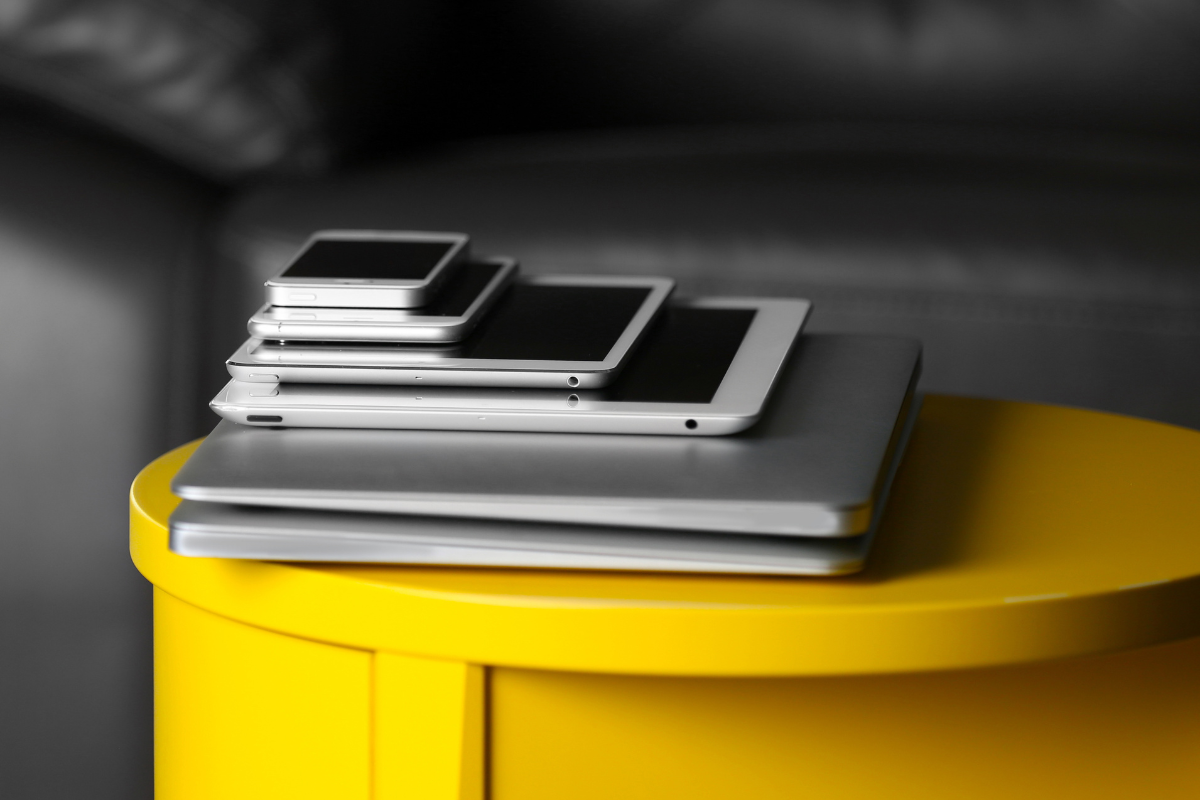
5. Consider Longevity and Durability
When purchasing new electronics, consider the longevity and durability of the product. Choose devices that are built to last and have good repairability. This reduces the need for frequent replacements and helps you get more value out of your purchase. Prioritizing longevity promotes the creation of sustainable electronics by reducing the need for new devices.
Making a Difference with Responsible Purchasing
Purchasing electronics responsibly isn’t just about being environmentally conscious—it’s also about making smart financial decisions and avoiding impulsive buying. By understanding the impact of your purchases on the e-waste problem and taking steps to buy only what you need, you can help reduce electronic waste and conserve valuable resources.
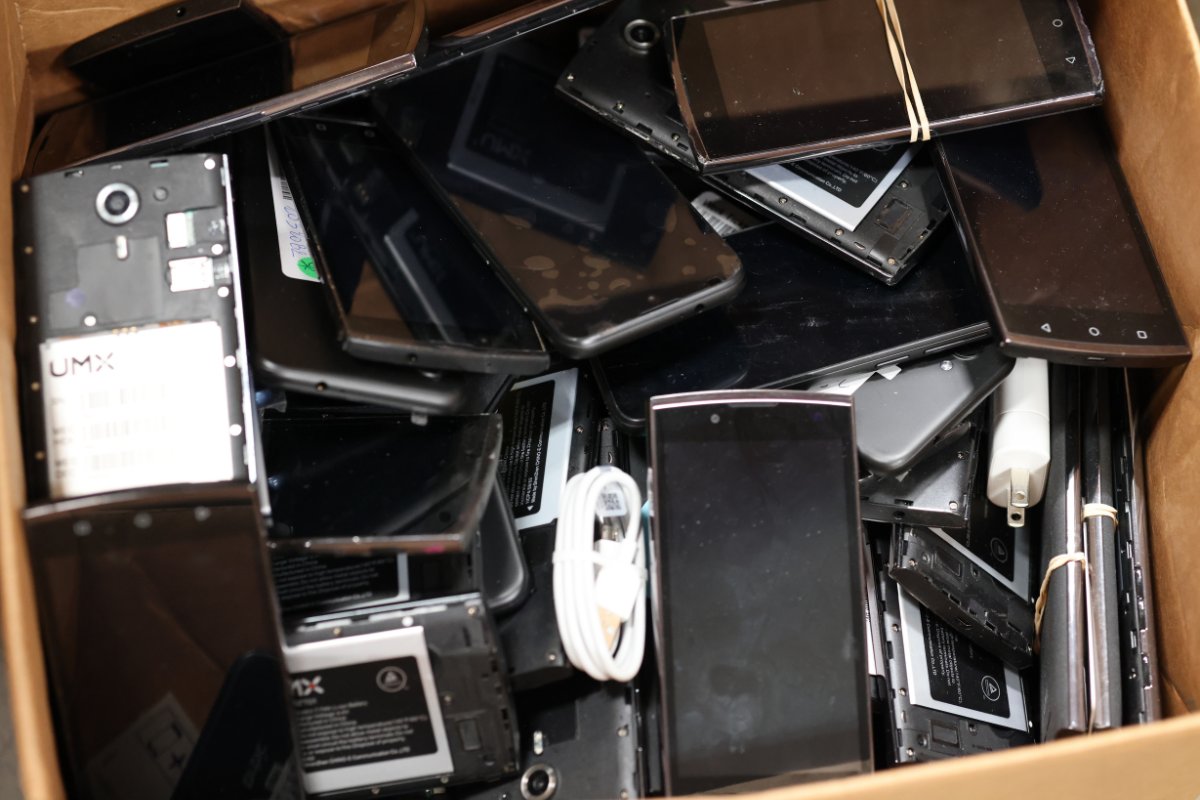
When upgrading your electronics, it’s important to know how to recycle your old ones responsibly. This is especially true for businesses that want to upgrade all of their systems because those businesses will now have a large bulk of electronics that need to be recycled. When this happens, you will definitely need to work with a certified IT Asset Disposition (ITAD) and e-waste recycling company to properly dispose of those electronics and to keep your data safe from third parties.
Remember, it’s not just about what you buy, but also about how you dispose of your old devices. Working with certified e-waste recyclers like Reboot Tech ensures that your old electronics are recycled properly, helping to protect the environment and support the circular economy.
So, the next time you’re tempted to buy the latest gadget, take a moment to evaluate your needs, avoid marketing traps, and consider the impact of your purchase. Together, we can make a difference by purchasing electronics responsibly and reducing the growing e-waste problem.


